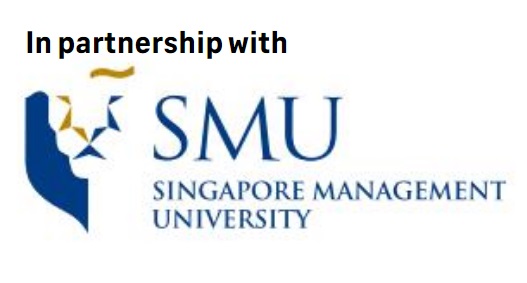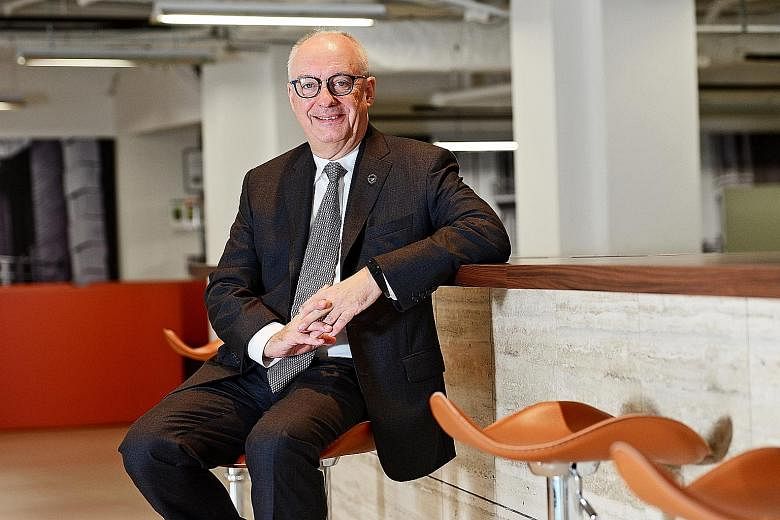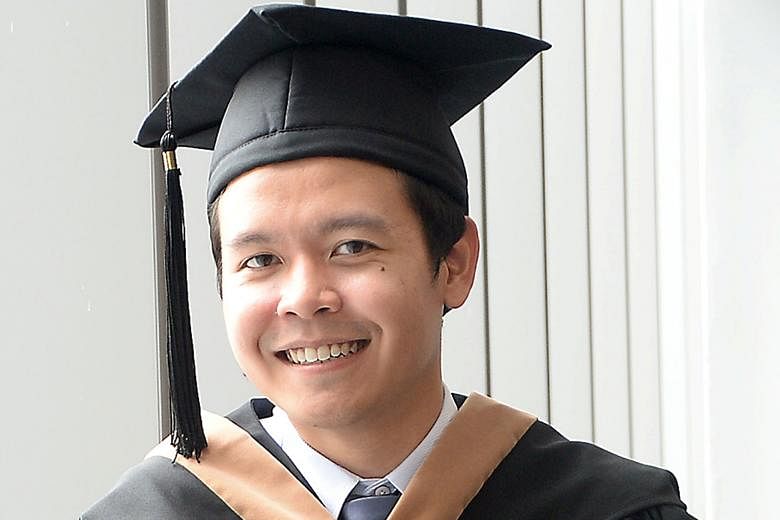Singapore Management University (SMU) encourages all its students to have at least one overseas stint - working, studying or undertaking a community service project.
One of its graduates from last year, Mr Muhammad Hafiz Kasman, didn't need any prodding.
In his four years at SMU, the business graduate studied in Mexico, worked in Myanmar and Indonesia, presented at a conference in Melbourne and went on a business study mission to three Scandinavian countries, as well as live in a monastery and teach in a village school in India as part of an overseas community service project.
The 25-year-old, who now works as a management consultant for leading consulting firm Oliver Wyman, admitted that before he started on his studies at SMU, he was "narrow-minded, insecure, indifferent to causes and issues and somewhat naive".
Now he describes himself as open, confident, optimistic and driven. "Maybe, still a little naive", he jokes, adding that his education at SMU had transformed him.
SMU president Arnoud De Meyer said graduates like Mr Muhammad Hafiz make a good case for the continued relevance of universities, even though information can be easily found online and a degree does not seem to guarantee good jobs nowadays.
"A university education, if done well, can be truly transformative," he says. It is more than taking up a 'bunch of courses', he told The Straits Times in an interview.
"Hafiz could have studied his business management degree online from MOOCs or by reading books," he said, referring to massive open online courses.
"But what made the difference was learning in a university, where he left with more than just book knowledge and theories on business management," he added.

-
About Arnoud De Meyer
-
Arnoud De Meyer, 63, is the fourth president of Singapore Management University. He was previously director of Judge Business School at the University of Cambridge, where he was professor of management studies and a fellow of Jesus College.
He was associated for 23 years with Insead, where he held various senior academic and administrative positions, including founding dean of Insead's Asia Campus in Singapore.
The Belgian has a Master of Science in electrical engineering, an MBA and a PhD in management from the University of Ghent in Belgium. He also pursued his studies as a visiting scholar at the Sloan School of Management, Massachusetts Institute of Technology in the United States.
Prof De Meyer's research interests are in manufacturing and technology strategy; R&D management; project management under conditions of high uncertainty, and management and innovation in Asia. His work is published widely in academic journals and he has written several books.
He serves on several boards, including the National Research Foundation, Singapore International Chamber of Commerce, Singapore Symphonia Company Limited and Temasek Management Services. He is an external director of Dassault Systèmes (France), chair of the Strategic Advisory Committee of Belgium's Flemish Institute for Technological Research, or Vito, and chair of the Equis Accreditation Board..
Prof De Meyer, 63, was the founding dean of Insead's Asia campus and then the director of Cambridge University's Judge Business School before taking the helm at SMU in 2010.
To appreciate the value that universities add, one must go back to the original notion of a university, said the Belgian, who studied electrical engineering as an undergraduate and then obtained a graduate degree and doctorate in business at the University of Ghent in Belgium.
"It was envisioned as a community of scholars and students who together discover new ideas and new knowledge and prepare themselves for a career," he said, adding that many universities around the world, including SMU, still hold on to that ideal. Universities like SMU can help young people like Mr Muhammad Hafiz "discover themselves, the world and their place in the world", he said.
Increasingly universities, to prepare students for a "portfolio of careers", are giving their students full flexibility to mix and match their courses and co-curricular activities, as well as work and study opportunities. Like Mr Muhammad Hafiz, students should make the most of it.
SMU offers more than 300 combinations of 44 majors and specialisation tracks across six disciplines. It also offers 15 double-degree combinations, with more than 80 per cent of its students graduating with double degrees or double majors.
Prof De Meyer said it is important to allow students to take ownership of their learning.
"SMU offers diverse opportunities. A student has to seize them but also shape those opportunities to what he or she wants to do with them," he said.
In many universities around the world and in Singapore, lectures and tutorials are being replaced with flipped classroom teaching, where students come to class after having accessed the content online and through lectures on videos.
Class time is used for deeper learning activities, such as tackling problems and engaging in more discussions with professors as guides
At SMU, seminar-style teaching as it is called, is done in small groups. Students participate fully in their learning as marks are awarded for speaking up in class - up to 20 per cent for some courses.
Said Prof De Meyer: "Students complain about it, especially in the first year, but I teach one of the classes and you really see the students, even the quiet ones, finding their voice."
SMU has adopted such a teaching style since it opened in 2000. This has given SMU graduates an edge, with employers noting that they tend to communicate well and have no problem speaking up, noted Prof De Meyer, who added that this was an important skill to have.
To stay relevant, universities around the world are striving to make education more experiential by "bringing the real world into the classroom", he added.
SMU has done it through SMU-X courses, where lessons are centred on solving real-world problems.
A public policy management course, for instance, is taught by getting students to work with a welfare organisation to draw up programmes for disadvantaged families. Professors guide students through their projects. Students are graded on their participation and the final outcome of the project.
Teamwork and collaboration are emphasised. Students in all project teams, including those for SMU-X, are drawn from different faculties so they learn to work with people from different backgrounds who might have different viewpoints.
Universities have also caught on to the importance of internships, said Prof De Meyer.
SMU made internships a requirement for its students from the word "go" back in 2000, he said. Students have to complete a 10-week internship, at the minimum, to meet their graduation requirements.
Now, more that 80 per cent of SMU students complete at least two internships with some even extending their study period to fit in more work stints.
A high proportion of them - one in three - are talent-spotted and offered jobs by host companies before graduation.
Professor De Meyer said with globalisation on the march, international experience has also becoming a critical part of a well-rounded education.
Hence, SMU is also going to make overseas exposure a graduation requirement from the coming academic year. Currently, about 90 per cent of SMU students head abroad to work, study or undertake community service at least once.
Prof De Meyer said another graduation requirement for SMU students is community service, although in recent years there has been debate on whether polytechnics and universities here should make it compulsory.
SMU students are expected to put in at least 80 hours of community service. But many SMU undergraduates continue to serve even after meeting the minimum requirement, noted Prof De Meyer. On average, graduates of the past three cohorts recorded more than 140 hours each.
The requirement is merely to nudge them to think about how they can help others.
"While some may have started because of the requirement, it is through community service that they realise that they can make a difference."
He said a good university education adds not just knowledge, but also skills - hard skills as well as work and life skills, like flexibility, cultural literacy and the ability to innovate.
"So it is not degrees versus skills. It's degrees and skills," he said.



